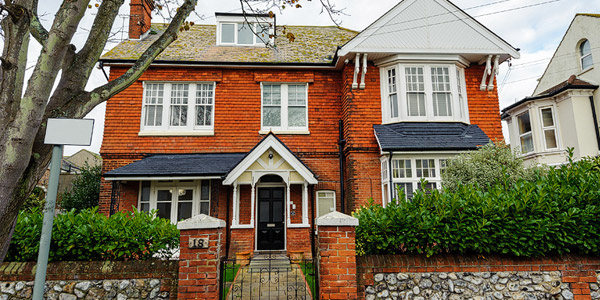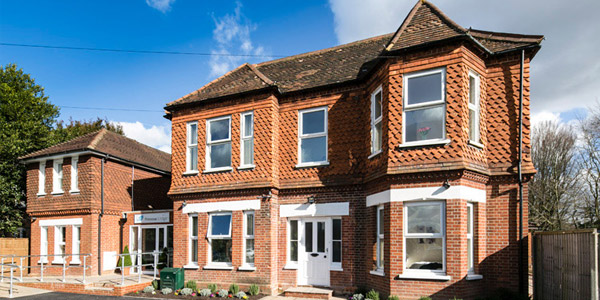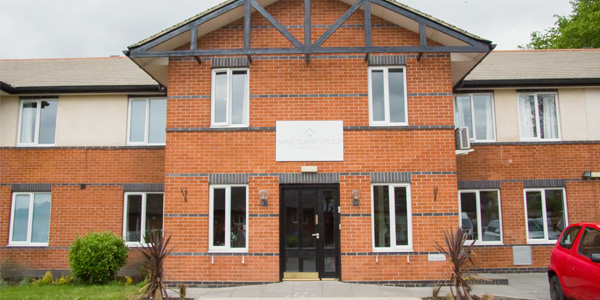Alcohol & Drug Rehab In Swale
Ask someone to describe their idea of the UK current addiction epidemic, and it is unlikely that they would depict somewhere like Swale – but no corner of the country is untouched by substance abuse, and well-established poisons such as heroin are now jostling for the attention of Swale’s drug users with new psychoactive substances (NPSs) like spice, while alcohol and prescription medicines continue to cause individual tragedies and social strife alike.
If you or someone you love is battling addiction in or near Swale, you could be forgiven for feeling ignored by state services, with pared-down budgets seemingly going inexorably into inner-city areas. However, do not allow despair to triumph: there is hope for you in the form of a new wave of private facilities which have emerged in recent years and which already have made the difference between life and death in countless cases. Read on to find out how your own life could be transformed – or even saved entirely – by rehab…

The Recovery lighthouse is a 13 bedroom alcohol and drug rehab facility set…
- Private
- Holistic Treatment
- 24/7 nursing
- Residential
Featured Rehabs
At Primrose Lodge we genuinely care that our patients make a full recovery …
Sanctuary Lodge is a state of the art detox and rehabilitation facility, se…
Liberty House Clinic is a fully furbished detox and rehabilitation facility…
Drug & Alcohol Rehab Services in Kent
- A
- B
- C
- D
- E
- F
- G
- H
- I
- J
- K
- L
- M
- N
- O
- P
- Q
- R
- S
- T
- U
- V
- W
- X
- Y
- Z
What Is Rehab?

Residential rehabilitation – “rehab” – is the name given to addiction treatment provided on-site at a dedicated facility, as well as to the facility itself. Rehab is typically set in spacious, pleasant surroundings in which patients feel able to focus wholly on the recovery process; furthermore, as these facilities are completely confidential, patients need not worry about details of their condition and treatment becoming known to the outside world.
Rehab provides addicts with a holistic approach to treatment, beginning with a detoxification (“detox”) phase (potentially involving medication to ease the withdrawal process) and subsequently involving a period of therapy aimed at uncovering the root causes of their addiction, and at providing patients with defence mechanisms against relapse.
Because of this bilateral approach to treatment – addressing both physical dependency and the longer-term challenges of psychological addiction – there is a broad consensus that rehab is the most effective approach to addiction treatment, in terms of providing patients with the greatest chance of enjoying a permanent recovery.
How can I get Someone into Rehab?
Because of addiction’s ability to destroy lives over a very short period – and because substance abuse can cause the death of the user at any time (either via overdose, or as a result of an accident or an intentional attack in which drink or drugs play a significant role) – it is absolutely imperative to seek professional help as soon as an addict is prepared to acknowledge their condition and request assistance.
The NHS offers a range of very good addiction treatment services; however, demand is extremely high (and growing), and waiting times can be distressingly long (while spaces for many of those services are limited). If you are struggling with a serious addiction and need help, time is of the essence: reach out to discuss some of the private options available to you with an addiction specialist. Call 0800 024 1455 today.
The Advantages of Private Rehab
As discussed above, one key element of rehab is the peaceful secure, secluded and totally confidential setting it can provide for an addict to begin the recovery process away from the temptations and distractions of everyday life and from the environment of substance abuse within which their addiction took hold.
The dedicated, caring, highly experienced and highly skilled medical staff working in a rehab understand the nature of addiction and can bring their vast experience to bear when working with patients from all demographics and all walks of life; this can be hugely comforting when a patient enters rehab not knowing what to expect, and full of trepidation regarding their forthcoming stay.
Upon entering rehab, a patient will go through a period of detoxification (“detox”) and withdrawal, monitored and assisted by the medical team who may prescribe certain medication to alleviate some of the worst withdrawal symptoms. When this process is complete the patient will then engage in various forms of therapy – in both group and one-to-one settings – to address the root causes of their addiction and equip them with defence mechanisms against relapse.
Throughout their stay a patient will benefit from tailored fitness dietary plans – “healthy body, healthy mind” – as well as other facilities which will vary from one rehab to the next. The recovery process is not complete when a patient leaves rehab but is an ongoing journey requiring dedication and strength of will; in recognition of this, and to fill each patient with the reassurance that they are not alone during the next phase of the recovery, good rehabs will provide up to a year’s free aftercare.
What Does Rehab Cost Near Swale?
The cost of private rehab in or near Swale can vary significantly by treatment programme, and depending on which of a variety of optional extras are selected. As a rough guide, standard costs range from between £5,500 and £11,000 per month, though the cheapest rehab treatment can start from as little as £834 per week. For more details, call 0800 804 4755.
NHS Addiction Treatment Options Near Swale
Private rehab may not be an option for everybody – possibly for reasons of cost, or perhaps because you do not feel it is feasible for you to spend a significant period away from your family and/or work commitments. Do not give up hope if this is the case: there are a number of NHS and charity resources in Swale and across Kent which can help you or a loved one tackle even the longest-standing addiction. Talk to your GP about which of these might be open to you and would be appropriate for your situation.
Advantages of NHS Treatment
The most prominent advantage of NHS treatment, unsurprisingly, is that it is free at the point of use, while private rehab does come at a cost: this cost may put some addicts off the idea of private rehab, though it is worth considering that compared with the costs of staying addicted it may be a minor investment – not to mention a life-saving one. NHS services are also very accessible geographically compared with some rehabs, because the NHS operates across the country, and at a high quality (though, again, waiting times can be lengthy and that quality does vary by location).
Addiction Support Groups
A number of organisations exist across the country to provide assistance to recovering addicts, and some of these operate a support group model. Support groups are groups of individuals who are themselves recovering addicts – some only recently free from addiction, while others may have been clean for many years – and who come together at regular meetings to give and take mutual support: sharing their stories of addiction, giving advice on how to resist relapse, showing solidarity and sympathy when group members are struggling, and providing the simple companionship which can mean so much in times of difficulty and loneliness. Support group attendees can come from all walks of life, brought together by their shared experience of addiction and recovery; typically, attendance at support groups is free and the only qualification for participation is a commitment to leading a life free of substance abuse.
The most famous support group organisation, and the one on which most others are modelled, is Alcoholics Anonymous (AA) which was founded in 1935 and runs on a 12-step programme of personal and spiritual development, with one of the steps being a recognition that a higher power – such as God – can assist with an alcoholic’s recovery. Narcotics Anonymous (NA), founded in 1953 and based directly upon the AA model, is the second-largest support group organisation worldwide and caters to recovering drug addicts specifically. In a similar vein, but supporting those recovering from addictions to specific substances, are Cocaine Anonymous (CA), Heroin Anonymous (HA), Marijuana Anonymous (MA) and Crystal Meth Anonymous (CMA), all of which operate 12-step programmes. There are also support groups such as Al-Anon and Nar-Anon assisting the families and friends of addicts which typically hold meetings alongside those for the addicts themselves.
Support groups typically meet weekly, though each local chapter is managed independently and meeting times and venues are subject to change. To find information on meetings in or near Swale, see the relevant websites:
Alcoholics Anonymous
, Narcotics Anonymous; Cocaine Anonymous; Heroin Anonymous; Marijuana Anonymous; Crystal Meth Anonymous
Types of Counselling

For recovering addicts with especially busy schedules, one useful supplementary treatment option is individual counselling: private addiction counsellors operate like regular psychotherapists (although understandably they focus heavily on addressing the causes and ramifications of addiction and substance abuse), and can usually be seen by private appointment on an ongoing basis (usually weekly) with fees charged per appointment.
Between them, private addiction counsellors offer a very wide variety of different therapy models and approaches to treatment, some of which are extremely niche while others mirror models which may be available in rehab. This form of treatment is often sought after by people who have completed a full treatment programme in rehab but who desire ongoing professional contact during the next phase of their recovery; and by addicts who have not yet undergone such a treatment program but who intend to, and wish to attempt to manage their addictions prior to doing so.
How to Get to Recovery Lighthouse from Swale
Recovery Lighthouse is an attractive, peaceful and spacious 13-bedroom alcohol and drug rehab facility situated in a quiet residential neighbourhood in Worthing, West Sussex. Its state-of-the-art facilities and highly experienced medical and support staff create the ideal environment in which to address the key questions at the heart of recovery from addiction, and to embrace its fully comprehensive holistic rehabilitation programme.
To get to Worthing from Swale, head out on the A2 to the B2006, and then join the take the A249; follow that road as far as the M20 and join the motorway heading towards London. Take the M26 exit towards Heathrow Airport, then merge onto the M25. At junction 7, take the M23 (S) exit towards Brighton; stay on the motorway as it becomes the A23, then continue down as far as the A27. Head west on the A27 as far as the B2223, then follow signs to the town centre.
Recovery Lighthouse
18 Winchester Road
Worthing
Sussex
BN11 4DJ




